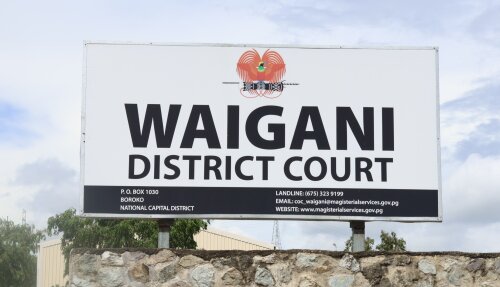Best Arrests & Searches Lawyers in Port Moresby
Share your needs with us, get contacted by law firms.
Free. Takes 2 min.
List of the best lawyers in Port Moresby, Papua New Guinea
About Arrests & Searches Law in Port Moresby, Papua New Guinea
The arrests and searches law in Port Moresby, Papua New Guinea primarily falls under the wider Papua New Guinea criminal code and the Papua New Guinea constitution. These laws give specific powers to the police to arrest, search, and detain persons suspected of committing offenses. However, there are strict protocols and rights to abide by during the conduct of such actions to ensure the protection of citizens' rights. The laws cover both warrant-based and warrantless arrests and searches.
Why You May Need a Lawyer
Legal advice is crucial when you are subject to an arrest or search. A lawyer can help you understand your rights and guide you through the process, ensuring legal procedures are followed. If you are accused of a crime, a lawyer can provide essential legal representation in court. When the legality of an arrest or search is in question, a lawyer can help challenge that in court. Also, if your rights have been infringed upon during an arrest or a search, a lawyer can aid in seeking redress.
Local Laws Overview
Under Papua New Guinea law, police are empowered to arrest anyone suspected of committing a crime, but such arrests must be reasonable and within the confines of the law. Arbitrary arrests without proper cause are illegal. Similarly, searches of a person or property require a properly issued warrant, unless in situations where rapid action is needed, like preventing the destruction of evidence. It is also mandatory for arrested persons to be informed of their rights, such as the right to remain silent and the right to legal representation, among others. Additionally, any evidence obtained in an unlawful manner may not be admissible in court.
Frequently Asked Questions
What are my rights during an arrest or a search?
You have the right to be treated humanely and not subjected to unnecessary force. You also have the right to know the reason for your arrest, the right to remain silent and right to a lawyer. The police should also present a warrant during a search unless it's a situation that warrants immediate action.
Can I resist an unlawful arrest or search?
While you have the right to challenge an unlawful arrest or search, resistance may lead to additional charges. It's best to comply peacefully and then contest the legality of the arrest or search with the help of a lawyer in court.
How quickly do I need to be presented before a court after being arrested?
Under Papua New Guinea law, you are to be brought before a magistrate as soon as practicable, usually within 24 hours after being arrested. This can be extended to 48 hours under specific circumstances.
Is evidence gained from an unlawful search admissible in court?
Typically, evidence obtained through an unlawful search is not admissible in court. However, there may be exceptions depending on the circumstances.
How can I challenge an unlawful arrest or search?
You can challenge an unlawful arrest or search with the help of a lawyer who can guide you through the legal process. The case can be contested in court based on infringement of your rights or incorrect legal procedure.
Additional Resources
For more information, you may visit the local police station or legal libraries. The Papua New Guinea National Judicial Staff Services website and citizen advice bureaus also provide useful resources. Non-profit organizations such as the Papua New Guinea Council of Churches (PNGCC) and the Papua New Guinea Law Society offer free legal advice and advocacy.
Next Steps
If you are in need of legal assistance, the first step is to seek consultation from a legal expert specialized in arrests and searches law in Papua New Guinea. They can provide you with legal advice tailored to your circumstances. Remember to gather all necessary documents and information related to your case before your consultation. You should also consider approaching local legal aid organizations for assistance if you don't have the financial resources to hire a private attorney.
Lawzana helps you find the best lawyers and law firms in Port Moresby through a curated and pre-screened list of qualified legal professionals. Our platform offers rankings and detailed profiles of attorneys and law firms, allowing you to compare based on practice areas, including Arrests & Searches, experience, and client feedback.
Each profile includes a description of the firm's areas of practice, client reviews, team members and partners, year of establishment, spoken languages, office locations, contact information, social media presence, and any published articles or resources. Most firms on our platform speak English and are experienced in both local and international legal matters.
Get a quote from top-rated law firms in Port Moresby, Papua New Guinea — quickly, securely, and without unnecessary hassle.
Disclaimer:
The information provided on this page is for general informational purposes only and does not constitute legal advice. While we strive to ensure the accuracy and relevance of the content, legal information may change over time, and interpretations of the law can vary. You should always consult with a qualified legal professional for advice specific to your situation.
We disclaim all liability for actions taken or not taken based on the content of this page. If you believe any information is incorrect or outdated, please contact us, and we will review and update it where appropriate.












